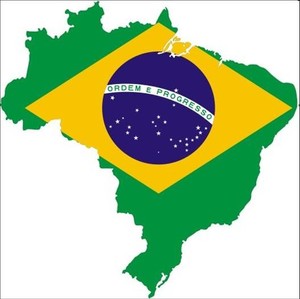New research shows the need for local production of biologicals in Brazil in order to offset the increasing medicines budget and reduce the trade deficit when it comes to drugs [1].
Prospects for producing follow-on biological products in Brazil
Biosimilars/Research
|
Posted 01/03/2013
 0
Post your comment
0
Post your comment

In 2010, the Brazilian Health Surveillance Agency (Agência Nacional de Vigilância Sanitária, Anvisa) released guidelines for the registration of ‘follow-on biological products’ as they are called in Brazil, opening the door to cheaper biological drugs.
The Brazilian guidelines (Resolution n°55/2010) are based on different regulations and guidelines from around the world, including the WHO similar biological product guidelines. The guidelines provide two regulatory pathways for follow-on biological products: a comparative pathway, and an individual development pathway based on a reduced dossier [2].
One way to combat increasing expenditure on foreign biologicals would be to produce these drugs locally. In a 2008 survey of the database of Anvisa, which is the regulatory body for approval of medicines in Brazil, seven national biologicals companies were identified as being registered in Brazil – Aché, Blausiegel, Cristália, Eurofarma, Fiocruz, Prodotti and Silvestre Lab.
The Industrial Health Complex (Complexo Industrial da Saúde, CIS) is a cornerstone of the Brazilian programme of action ‘More Health’ (Mais Saúde). This initiative is intended to boost the industry, including the domestic pharmaceutical and healthcare equipment sectors, to reduce Brazil’s dependence on imported products. Among its goals is to reduce the trade deficit to US$4.4 billion and to develop technology for the local production of 20 strategic products of Unified Health System (Sistema Único de Saúde) in 2013.
Seven biological products (interferon beta 1a, interferon beta 1b, factor VIII, filgrastim, imiglucerase, infliximab and somatropin) were identified by the authors as being of interest for Brazil to invest in locally produced follow-on biological products after a review of unit costs and volumes acquired in 2009 by the Brazilian Ministry of Health (Ministério da Saúde).
The patents for the products Advate (factor VIII), Avonex (interferon beta 1a), Cerezyme (imiglucerase) and Neupogen (filgrastim) will expire in Brazil in 2013, while that for Remicade (infliximab) will expire in 2014. However, follow-on biological products are not expected soon, due to the complexity of producing biologicals and the long, costly clinical studies which need to be performed to compare the original and the follow-on biological product.
The authors conclude by stating that ‘partnerships between academia and public and private sectors should be established to increase the rate of innovation and patent protection in Brazil and to master the scientific and technological knowledge in strategic areas to reduce the vulnerability of the national health system.’ They also add, however, that follow-on biological products ‘are not the only way to meet the needs of the [Brazilian] population for expensive biological products. A country must be able to effectively develop technology to meet its needs and thus grow and leverage the competitiveness of its industry in the country and the world in order to facilitate economic and social progress.’
Editor’s comment
If you are interested in contributing a research article in a similar area to GaBI Journal, please send us your submission here.
Related articles
The pharmaceutical market in Brazil
References
1. da Silva Madeira L, Borschiver S, Pereira Jr N. Prospects and Trends in the Brazilian Market for Biologically Sourced Products. J. Technol. Manag. Innov 2012:7(3);44-56.
2. GaBI Online - Generics and Biosimilars Initiative. Brazilian guidelines for follow-on biological products. [www.gabionline.net]. Mol, Belgium: Pro Pharma Communications International; [cited 2013 Mar 1]. Available from: www.gabionline.net/Guidelines/Brazilian-guidelines-for-follow-on-biological-products
Permission granted to reproduce for personal and educational use only. All other reproduction, copy or reprinting of all or part of any ‘Content’ found on this website is strictly prohibited without the prior consent of the publisher. Contact the publisher to obtain permission before redistributing.
News
FDA approves Poherdy (first interchangeable pertuzumab) and Armlupeg (pegfilgrastim) biosimilars
EMA recommends approval for insulin glargine biosimilar Ondibta and denosumab biosimilar Osqay
General
Samsung Bioepis wins Pyzchiva case; Regeneron patent rulings threaten foreign biosimilars
Chinese biosimilars go global: growth, partnerships, and challenges
What is the future for the US biosimilar interchangeability designation

Biosimilars/Research Posted 05/06/2025
Biosimilar clinical efficacy studies: are they still necessary?

Biosimilars/Research Posted 27/05/2025
The best selling biotechnology drugs of 2008: the next biosimilars targets








Post your comment